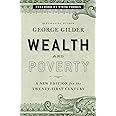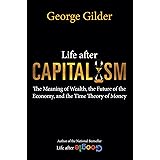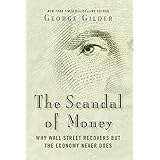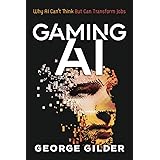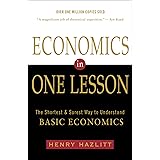
Enjoy fast, free delivery, exclusive deals, and award-winning movies & TV shows with Prime
Try Prime and start saving today with fast, free delivery
Amazon Prime includes:
Fast, FREE Delivery is available to Prime members. To join, select "Try Amazon Prime and start saving today with Fast, FREE Delivery" below the Add to Cart button.
Amazon Prime members enjoy:- Cardmembers earn 5% Back at Amazon.com with a Prime Credit Card.
- Unlimited Free Two-Day Delivery
- Streaming of thousands of movies and TV shows with limited ads on Prime Video.
- A Kindle book to borrow for free each month - with no due dates
- Listen to over 2 million songs and hundreds of playlists
- Unlimited photo storage with anywhere access
Important: Your credit card will NOT be charged when you start your free trial or if you cancel during the trial period. If you're happy with Amazon Prime, do nothing. At the end of the free trial, your membership will automatically upgrade to a monthly membership.
Buy new:
$17.61$17.61
Buy used:
$7.59





Download the free Kindle app and start reading Kindle books instantly on your smartphone, tablet, or computer - no Kindle device required.
Read instantly on your browser with Kindle for Web.
Using your mobile phone camera - scan the code below and download the Kindle app.

 Audible sample Sample
Audible sample Sample



Follow the author
OK
Knowledge and Power: The Information Theory of Capitalism and How it is Revolutionizing our World Hardcover – June 10, 2013
Purchase options and add-ons
America’s struggling economy needs a better philosophy than the college student's lament: "I can't be out of money, I still have checks in my checkbook!" We’ve tried a government spending spree, and we’ve learned it doesn’t work. Now is the time to rededicate our country to the pursuit of free market capitalism, before we’re buried under a mound of debt and unfunded entitlements. But how do we navigate between government spending that's too big to sustain and financial institutions that are "too big to fail?" In Knowledge and Power, George Gilder proposes a bold new theory on how capitalism produces wealth and how our economy can regain its vitality and its growth.
Gilder breaks away from the supply-side model of economics to present a new economic paradigm: the epic conflict between the knowledge of entrepreneurs on one side, and the blunt power of government on the other. The knowledge of entrepreneurs, and their freedom to share and use that knowledge, are the sparks that light up the economy and set its gears in motion. The power of government to regulate, stifle, manipulate, subsidize or suppress knowledge and ideas is the inertia that slows those gears down, or keeps them from turning at all.
One of the twentieth century’s defining economic minds has returned with a new philosophy to carry us into the twenty-first. Knowledge and Power is a must-read for fiscal conservatives, business owners, CEOs, investors, and anyone interested in propelling America’s economy to future success.
-
Print length400 pages
-
LanguageEnglish
-
PublisherRegnery
-
Publication dateJune 10, 2013
-
Dimensions6 x 1.2 x 9 inches
-
ISBN-109781621570271
-
ISBN-13978-1621570271
Frequently bought together

Similar items that may deliver to you quickly
Editorial Reviews
About the Author
Product details
- ASIN : 1621570274
- Publisher : Regnery (June 10, 2013)
- Language : English
- Hardcover : 400 pages
- ISBN-10 : 9781621570271
- ISBN-13 : 978-1621570271
- Item Weight : 1.26 pounds
- Dimensions : 6 x 1.2 x 9 inches
- Best Sellers Rank: #685,845 in Books (See Top 100 in Books)
- #359 in Free Enterprise & Capitalism
- #653 in Theory of Economics
- #1,105 in Economic Conditions (Books)
- Customer Reviews:
About the author

George Gilder, one of the leading economic and technological thinkers of the past forty years, is the author of nineteen books, including Wealth and Poverty, Life After Television, Knowledge and Power, The Scandal of Money, and Life After Google. A founding fellow of the Discovery Institute, where he began his study of information theory, and an influential venture investor, he lives with his wife in western Massachusetts.
Customer reviews
Customer Reviews, including Product Star Ratings help customers to learn more about the product and decide whether it is the right product for them.
To calculate the overall star rating and percentage breakdown by star, we don’t use a simple average. Instead, our system considers things like how recent a review is and if the reviewer bought the item on Amazon. It also analyzed reviews to verify trustworthiness.
Learn more how customers reviews work on Amazon-
Top reviews
Top reviews from the United States
There was a problem filtering reviews right now. Please try again later.
1. One of the few books that attempts to link non-linearity and information/chaos theory to today’s markets/economies
2. Using economic history and market practitioners, Gilder effectively crushes the perceived wisdoms of broken sources
3. Juxtaposed vs government intervention, a refreshing reminder of the role of the capitalistic entrepreneur in America
Content Highlights
1. “Most human beings understand that their life is full of surprises.” (pg 1) #intro chapter – The Need for a New Economics
2. “We are almost entirely incapable of predicting the future. Yet economics purports to be strangely exempt from this fact” (pg 1)
3. “It is an economics of surprise that distributes power as it extends knowledge” (pg 5) #truth about innovation and evolution
4. “All information is surprise; only surprise qualifies as information. This is the fundamental axiom of information theory” (pg 15)
5. “From Adam Smith’s days to ours, economics has focused on the nature of economic order” (pg 16) promising #certainty?
6. “Interest rates are critical for information-theory economic analysis because they are an index of real economic conditions” (pg 24)
7. “Profits differentiate between the normally predictable yield of commodities and the unexpected returns of creativity” (pg 25)
8. #EntropyEconomics (Chapter 4) = one of the best named chapters of the last 3 yrs #study
9. “economists everywhere have counseled governments… to attend everything except what matters most: innovation” (pg 27)
10. “The most important feature of an information economy… is the overthrow, not the attainment, of equilibrium” (pg 30) #nonlinear
11. “Entropy is a measure of surprise, disorder, randomness… its opposites are predictability, order, tyranny…” (pg 34)
12. “Republicans… both Bushes through McCain… all cherish the illusion that leading economists possess vital wisdom” (pg 38) #joke
13. “Believing that a weaker Dollar is just the thing to spur a sluggish economy… they miss the devaluation of all the assets” (pg 38)
14. “George Romney capitulated to these forces” (pg 38) and being advised by Glenn Hubbard, ultimately Mitt did too #BigMiss
15. “Wealth actually springs from the expansion of information and learning” (pg 46) #capitalism #freedom #liberty
16. “Smith’s vision of the entrepreneur as a tool of the market… rather than its creator constitutes the original sin” (pg 47) #AdamSmith
17. The Light Dawns (chapter 7 concludes that Smith, Keynes, Hayek, and Samuelson have all been proven wrong) (pg 63) #true
18. “Looking for disequilibria to reconcile into equilibrium, economists suppress multifarious complexities” (pg 71) #yep
19. “Savings reflect the profitability – the upside entropy – in an economy” (pg 72) excess cash flows born out of positive info surprise
20. “The entrepreneur is the savior of the system because he capitalizes himself” (pg 77) #evolution
21. Fallacies of Entropy and Order (chapter 9) (pg 79)
22. “Most of the history of economics revolves around the issues of how order and equilibrium can be maintained” (pg 85) #Krugman
23. “None of these economists of equilibrium was comfortable with a dynamic economics” (pg 85) #Growth #Change #Surprise
24. “Order is not spontaneous, but it is a necessary condition for all the surprises of freedom and opportunity” (pg 87)
25. “Everyone thinks he knows what information is… information is change in what we know” (pg 101) great quote
26. “They had no heads. The frenzy was all they had… the urge was all they felt” –Tom Wolfe (pg 104) #behavioral econ
27. On Austin Goolsbee: “chairman of the President’s council of economic advisors exhibited as little understanding…” (pg 114)
28. “… much of the profession is empirically bankrupt because it is no longer taught economic history” –Charles Kindleberger (pg 115)
29. “The successful executive pursues not efficiency but effectiveness” –Peter Drucker (pg 126)
30. “The goal of financial reform should be to end this divorce between knowledge and power” (pg 132) secular #theme of book
31. “Unlike an inexorable, Newtonian “great machine”, the economy is not a closed system” (pg 133) don’t tell #Keynesians that
32. “High entropy regulation destroys the environment that it seeks to enhance” (pg 150) #BigGovernmentIntervention #Fed
33. “If a science has an adjective, it probably isn’t a science” –Richard Feynman (pg 159), Ivy League “economics” is no science
34. “Pursue opportunities is the counsel of the capitalist” (pg 161) #bingo
35. “It has become a virtual casino” –Bob Wilmers (CEO of M&T Bank) (pg 168)
36. “Paulson/Bernanke in constant conversation with unhealthy institutions; wouldn’t talk to leaders of healthy banks” –Allison (pg 170)
37. “In my career, the Fed has a 100% error rate in predicting and reacting to important economic turns” –John Allison (pg 175)
38. “wealth is only valuable if combined with information” (pg 178) #perspective
39. “America’s leading entrepreneurs, with some exception, display discipline and self control, hard work and austerity” (pg 183)
40. “Greed is an appetite for unneeded and unearned wealth and power” (pg 184) beauty quote about #politicians
41. “All progress comes from the creative minority” (pg 192) otherwise why would society glorify their stories?
42. “Taleb, in all likelihood, deems you a turkey” (pg 197) in Chapter 18, The Black Swans of Investment, criticizing Taleb
43. “I believe, however, that the fool of randomness is Taleb” (pg 200) #aggressive!
44. “21st century intellectuals have looked to information theory for a solution” (pg 201) maybe, sort of, but hardly consensus
45. “Great books, great ideas, and great thinkers” (pg 207) on Mark Skousen’s Freedom Fest annual conference
46. “No one in your company knows less about your business than your see eff oh” –Peter Drucker (pg 218) CEOs need vision
47. “Stockman ended up capitulating to his critics” (pg 219) appropriately critical of David Stockman’s “CFO” myopia
48. “0% interest rate policy of the Federal Reserve diverts the wealth of savers to governments, crony capitalists, etc” (pg 224)
49. “History tells us that the threat to prosperity is not debt but socialism” (pg 225) great focus pt quote
50. “Just as the post war recovery of the 1950s confounded Paul Samuelson’s gloomy predictions” (pg 234) #Keynesian failures
51. “fragmented, the academic sciences are turning to politics, panics, and cartels to preserve their old privileges” (pg 270)
52. “Most of the courses they took were either self-evident or wrong, ideological, or tautological, twisted, or trivial” (pg 270)
53. “Now an abstruse and occasionally revealing discipline has emerged called quantum information theory” (pg 271)
54. “Governed by entropy (measuring freedom of choice), it is a science of human liberty” (pg 271)
55. “Just as the bureaucrat needs arbitrary power, the capitalist needs capital” (pg 275) #excellent conclusion
This is a thought leader’s book. With so many people whining about not having a “solution” to Washington’s economic policies, ask yourself if we’re asking the right leaders for new ideas. This book is the antichrist of broken western-academic-economic-policy group-think.
KM
Gilder in "Knowledge and Power" turns the general understanding of economics upside down and argues that economics is "flawed from its foundation, has ossified into an academic establishment and mutated into mathematic into mathematics, the Newtonian scheme became a mirage of determinism in a tempestuous world of human actions." with "economists preoccupied with mechanical models of markets and uninterested in the willful people who inhabit them."
Instead, economics needs to be viewed as an information system not an incentive system. Accumulated knowledge that comes from new information is what constitutes new wealth and is the source of surprise as entrepreneurs translate it to economic growth through novelty and invention. Economic "surprises" cannot be predicted. Economists, however, prefer a deterministic, no-surprises (and too-big-to-fail) economy which results in stagnation.
As someone who grew up with family in the newspaper and advertising industries, I marvel at how they have both been transformed radically by the convergence of internet, smart phones, WiFi, and more. Few saw this coming in the late 1990s. Fracking also caught everyone by surprise and transformed America into a leading energy producer from being at the mercy of the oil cartel. This new source of energy will give American a significant global competitive advantage for years to come. Both of these transformations were driven by new information that entrepreneurs capitalized on and turned into true wealth for all of us. "It is accumulated knowledge (the learning curve effect), rather than money or material, that constitutes true wealth."
Today, there is a universal distribution of knowledge and it is dispersed in people's heads where it gets fed back to the economy through "the creative insights and entrepreneurial efforts of people worldwide that constitutes our chief hope for economic growth in the era opening up before us." But since knowledge is a source of power, we must also be on watch for the government's attempt to substitute state power for knowledge (debt, taxation, regulation, "stimulus" packages) destroying information and slowing economic growth...Monetary manipulation and material extraction are becoming painfully apparent."
Information flows and the accumulation of knowledge follow decentralized power, but the elite thinking of the day is founded on centralized power and need to run their system without deviations." Large organizations in both the public and private sectors suffer from the need for centralization and order. Large entities cannot stand surprises. Systems, regulations, and policies are used to control the potential of surprise by controlling behavior, and in turn,l information flows and the ability to rapidly accumulate knowledge.
Early in my career, I worked for American Hospital Supply Corporation which was highly decentralized. Our CEO, Karl Bays, insisted on localized decision-making and accountability. We learned that we got better information, faster decision-making, and understood our markets better than our competition. I saw a beautifully designed information system based on decentralized power. AHSC was unrivaled in the 70s and 80s for producing some of the best talent in the healthcare industry. All of us who graduated from AHSC took this lesson with us.
On the use of regulation to stem information flows, I will point to the FDA's rules that hold medical device innovation hostage. FDA regulation does not facilitate rapid learning but puts a premium on perfection, which no one ever achieves, over iteration. This is driving U.S. companies (and jobs) off shore to survive increasing global competition. Non-US companies are not bound by the FDA regs and can iterate a new technology more rapidly.
Gilder's "Knowledge and Power" is an important book and is a must read for anyone concerned about economic and job growth. I have read some of the negative reviews posted for this book and can only surmise that the authors of these posts are not living in the real world of innovation and job creation. One year in Silicon Valley will change their perspective as they will find that information flow and knowledge accumulation are the life blood of innovation, surprise, and wealth creation.
Gilder explains the disincentives of socialism in detail especially their impact on the entrepreneurial spirit. The jest of his book is simple...
“Capitalism is the most effective way of expanding wealth, not because it offers the most powerful incentives-the most tantalizing arrangements of carrots and sticks-but because it links knowledge with power. It gives control over resources and over the future flow of investments not to political bureaucracies of certified experts or to the most avidly self-loving pursuers of leisure and luxury, but to the particular entrepreneurs who manage successfully experiments of enterprise. It grants riches to those very individuals who have proved their ability to forgo immediate gratification in pursuit of larger goals, and who refuse to waste or to hedonistically consume their incomes, It assigns further power to those very people, whomever they may be, however unorthodox or uncredentialed, who launch successful projects and commit to them their lives and savings.” Page 278
Our founders would be proud of this book.
Top reviews from other countries
Nach George Gilder liegt die Stärke des Kapitalismus darin, das nur die erfolgreichen Unternehmen, die Gewinne machen, die Möglichkeit erhalten, weitere Produkte herzustellen. Sie haben ja ihre Nützlichkeit bewiesen, ihre Produkte wurden gekauft. Zur Produktion von Waren und bei der Durchführung von Dienstleistungen ist sehr viel Wissen erforderlich. Ein Unternehmen ist eine Art Experiment, wie und zu welchem Preis waren produziert werden können, die dann von der “demand”-Seite auch nachgefragt werden. Ein Unternehmen muss das Wissen erst erlernen. Der Gewinn, der aus erfolgreichem Wirtschaften entsteht, gibt dem Unternehmen dann die “Power” weiterzumachen. In der heutigen Welt wird die “Power” allerdings durch Eingriffe des Staats beeinträchtigt. Laut Gilder wird damit “Noise” in das System eingeführt und stark geschädigt. Er macht das z. B. besonders beim Insider-Handel mit Aktien deutlich, der verboten wurde. Der Handel mit Aktien sollte eigentlich auf den Informationen beruhen, die man über eine Firma hat und nicht auf Spekulationen. Je weniger Informationen es aber über die Firmen gibt, desto mehr wird das System zum “Kasino-Kapitalismus”. Denn der Aktienkauf beruht nicht mehr auf Fachinformationen, sondern auf dem Zufall. Das ist ein Beispiel dafür, dass eine gut gemeinte Regulierung negative Begleiterscheinungen hat und von “Linken" dann “dem Kapitalismus” als negative Systemeigenschaft vorgeworfen wird.
Der Autor benutzt als Analogie die Idee, dass Information eine Überraschung, eine Abweichung vom Regulären ist. Erfolgreiche Firmen bringen Ideen mit einem hohen Überraschungspotential auf den Markt. Also die Information ist für den Markt an sich hoch, nicht das Produkt an sich. Ein Buch mit einem einfachen Satzbau und wenig Wörtern hat einen geringeren Informationsgehalt als ein Buch mit einem großen Wortschatz. Aber den Markt interessiert hier der Gewinn und wie viele Folgeprodukte man evtl. noch verkaufen kann usw. Und diese marktrelevante Information ist es, die höher ist.
Diese informationstheoretische Begründung ist aber nur informell. Das ist keine mathematische Argumentation und im strengen Sinn auch keine “The Information Theory of Capitalism”, wie es z. B. mathematisch vorgebildete Wirtschaftswissenschaftler erwarten würden. An manchen Stellen ist die Argumentation auch rein informationstechnisch nicht 100% sauber. Aber ich musste im Laufe des Buches feststellen, dass der Autor über sehr weitreichende Kenntnisse verfügt. Manchmal schlägt er da allerdings Schlachten, die nicht richtig zum Thema gehören, sondern eher in die amerikanische Politik. Andererseits ist alles interessant geschrieben und mich persönlich interessieren Querdenker sehr.
Auch wenn ich nicht mit allen Punkten des Autors übereinstimme und es ein paar Mängel gibt, ist das Buch ein Leseerlebnis und ich konnte es nur schwer aus der Hand legen.
Mr. Gilder seems to apply Entropy law to the dissemination of information throughout the universe. The freer the medium, the more rapid the dissemination of all information. The more rapid the dispersion of information to individuals, the more creative they become with it. Things or processes get innovated, invented or built. Entrepreneurs can more readily; employ & co-ordinate the other three factors of production (Land, Labor & Capital) into projects and enterprises of production, or services; expanding economies; wealth and prosperity, etc.,thus raising living standards, and employing more people.
Regrettably,on the down side, Mr. Gilder seems to have a penchant for verbosity, which I find to be quite annoying, especially when I don't know what he is talking about! Moreover, his expression of important parts of his thesis are fuzzy.
Finally, I think that we have all known, that information is fundamental to the 4th agent of production, i.e., Entrepreneurship.
Based upon the premise that Entrepreneurial activity is essential to the growth of economies and the prosperity of their peoples, Mr. Gilder uses Entropy Law to demonstrate that a stifling slow entropy (the medium of information dissemination) will frustrate, diminish or arrest, entrepreneurial activity( i.e.,fast entropy) to the detriment of everyone in that society.
Entropy and economics are both natural sciences, and observations in the one can be applied to the other.
I have probably not done Mr. Gilder justice with my understanding of what he has done in this book. It seems now, that what he was trying to prove, is that entropy and entrepreneurship are "Natural Laws", which should be observed and adhered to religiously. That would mean a 'sea change' for all tyrannies, and most western democracies.
If you are a 'control freak', this book could really make you Mad!




